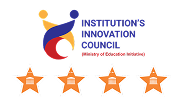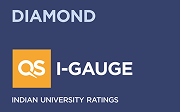

You may interested in
Past Events
-
Sustainable Tourism Model...
Ganpat University proudly announces the next session of the Internati...
-
Application of Artificial...
International Expert Lecture Series | GUNI–CMSR Ganpat Universi...
-
One Day Workshop on "How...
One Day Workshop on "How to Make CV Attractive?"
Workshop on "Strategies for Successful Implementation of ERP (Enterprise Resource Planning)"

Description
Workshop on "Strategies for Successful Implementation of ERP (Enterprise Resource Planning)"
Ganpat University Centre for Management Studies and Research organized Workshop on "Strategies for Successful Implementation of ERP (Enterprise Resource Planning)" on 16th July 2023. More than 100 students from MBA (Pharma/ IB/ Agri/LSCM/HHM/FS/BA) had been participated in this skill development research workshop. A workshop on "Strategies for Successful Implementation of ERP (Enterprise Resource Planning)" typically focuses on equipping participants with the knowledge and skills needed to effectively implement ERP systems in their organizations. Here are some key objectives and desired outcomes for such a workshop:
Objectives:
- Understand ERP Fundamentals:
- Define ERP and its components.
- Discuss the benefits and challenges of ERP implementation.
- Develop a Strategic Implementation Plan:
- Identify the key steps involved in ERP implementation.
- Understand the importance of aligning ERP implementation with business objectives.
- Assess Organizational Readiness:
- Evaluate organizational readiness for ERP adoption.
- Identify necessary changes in organizational culture and processes.
- Manage Change Effectively:
- Learn strategies for managing change and overcoming resistance.
- Develop a change management plan that includes communication strategies and training.
- Select and Customize ERP Systems:
- Understand criteria for selecting the right ERP system.
- Learn how to customize ERP solutions to fit specific organizational needs.
- Ensure Data Accuracy and Integration:
- Discuss the importance of data quality and strategies for data migration.
- Learn about integration points and how to ensure seamless data flow between systems.
- Implement and Monitor ERP Systems:
- Understand best practices for the actual implementation phase.
- Learn how to monitor ERP performance and measure success.
- Address Post-Implementation Challenges:
- Discuss common post-implementation issues and how to address them.
- Learn about ongoing support and continuous improvement strategies.
Desired Outcomes:
- Comprehensive ERP Knowledge:
- Participants should have a solid understanding of ERP systems, including their benefits, limitations, and key components.
- Strategic Implementation Plan:
- Each participant should be able to draft a strategic plan for implementing an ERP system tailored to their organization’s needs.
- Change Management Skills:
- Participants should be equipped with strategies to manage organizational change and mitigate resistance effectively.
- Customized ERP Solutions:
- Attendees should understand how to select and tailor an ERP system to their specific business processes and requirements.
- Data Management Proficiency:
- Participants should be able to plan for effective data migration, integration, and ensure data integrity within the ERP system.
- Effective Monitoring and Support:
- Participants should know how to set up monitoring mechanisms to track ERP performance and address any issues that arise post-implementation.
- Actionable Insights and Tools:
- Attendees should leave with actionable insights, practical tools, and templates that they can use in their ERP implementation projects.
- Networking and Best Practices:
- Participants should have opportunities to network with peers, share experiences, and learn from case studies and real-world examples.
By achieving these objectives and outcomes, participants will be better prepared to lead or contribute to a successful ERP implementation in their organizations, ultimately improving efficiency, productivity, and decision-making.







